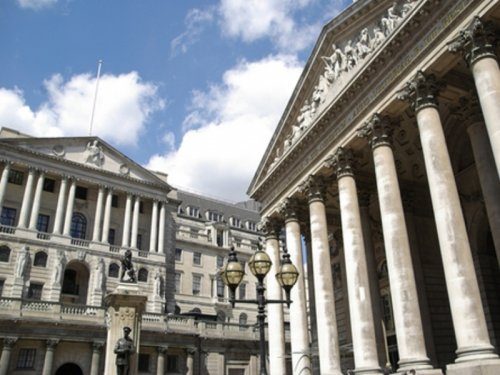Interest rate cut as Bank of England responds to coronavirus crisis

A Budget day interest rate cut has been announced by the Bank of England alongside a new scheme to support additional borrowing by SMEs.
The Bank of England has launched its own response to the impact of coronavirus, with a “comprehensive and timely” package of measures as it seeks to innoculate the UK economy from the worst.
It has warned the country faces “an economic shock that could prove sharp and large”, albeit one that is temporary.
In a statement, the Bank of England said: “These measures will help to keep firms in business and people in jobs and help prevent a temporary disruption from causing longer-lasting economic harm.”
The announcement comes hours before Chancellor Rishi Sunak will deliver his first Budget, which is expected to focus on the Government’s own response to the coronavirus crisis.
At an emergency meeting, the Bank’s Monetary Policy Committee (MPC) unanimously agreed to reduce interest rates, by 50 basis points to 0.25%. It is the largest interest rate move for more than a decade and returns it to an all-time low only previously seen in the aftermath of the EU referendum.
A new funding scheme has been launched which it estimates could provide more than £100bn to businesses.
Over the next 12 months the scheme will offer four-year funding of at least 5% of participants’ stock of real economy lending at interest rates at, or very close to, the bank rate.
The Bank’s Financial Policy Committee (FPC) has also reduced the UK countercyclical capital buffer rate to 0% of banks’ exposures to UK borrowers – a move that will support up to £190bn of bank lending to businesses.
The Bank of England is confident the banking system is resilient enough for the expected disruption.
It said: “Such economic disruption should have less of an impact on the core banking system than recent stress tests run by the Bank have shown the system can withstand.”
Laura Suter, personal finance analyst at Manchester investment platform AJ Bell, said: “This was a swift move from the Bank of England in an attempt to support the UK economy amid the coronavirus turmoil, but the unanimous vote to slash rates back to the lowest point in history will shock some at how quickly it happened.
“The move, which takes rates lower than in the financial crisis, is the first unscheduled interest rate change from the Bank of England since the banking crisis 12 years ago. The cut to 0.25% also leaves minimal ability to slash rates further in the future.
“The move is coupled with support for businesses, with a new term funding scheme and relaxing bank credit rules to get more help to businesses, in an attempt to help small companies through the disruption, slower sales and potential shutdowns that may be caused by coronavirus.
“This gives an indication of what is to come in Rishi Sunak’s first Budget later today, with further help for businesses and even a business rate holiday suggested as a helping hand for companies.
“However, while the package of measures will help businesses they will be light relief for individuals, who are unlikely to see a big impact from the cuts.
“Mortgage rates are already near record lows and it’s unlikely providers will be able to cut them much more – let alone pass on the entire rate cut. The exception is those on tracker rates, who will see a near-immediate effect on their monthly repayments.
“What’s more, savers who have already seen a swathe of cuts to the interest they get on their cash are likely to be hit further.
“The top rate you can get on an easy-access cash account at the moment is 1.3%, far below the current rate of inflation, and this now looks ripe for another cut following today’s move.
“Cash savers will feel they’ve been dealt another blow after years of being clobbered with below-inflation rates – meaning they are losing money in real terms.
“However, the potential cut to interest on debt could come at a crucial time for some.
“One in eight adults have no savings at all and 45% of the population have less than £2,000 in cash – so if coronavirus starts to hit people’s earnings we could see a big rise in the level of debt people have to take on just to pay the bills. If the rate people are paying on this debt falls it could provide some support at the edges.”







